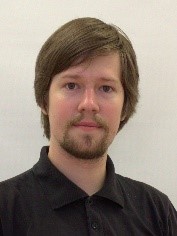
Biography
Biography: Dmytro A Bozhko
Abstract
Finding new ways for fast and efficient processing and transfer of data is one the most challenging tasks nowadays. Elementary spin excitations - magnons (spin wave quanta) - open up a very promising direction of high-speed and low-power information processing. Magnons are bosons, and thus they are able to form spontaneously a spatially extended, coherent ground state, a Bose-Einstein condensate (BEC), which can be established independently of the magnon excitation mechanism even at room temperature. Recently we have succeeded to create magnon supercurrents by introducing a time-dependent spatial phase gradient into its wave function. The experiment was done in a single-crystal film of yttrium iron garnet (Y3Fe5O12, YIG). The temporal evolution of the magnon BEC formed in a parametrically populated magnon gas was studied by means of time- and wavevector-resolved Brillouin light scattering spectroscopy. It has been found that local heating in the focal point of a probing laser beam leads to the excessive decay of the BEC, which is associated with the outflow of condensed magnons driven by a thermal gradient. Furthermore, I will demonstrate non-local probing of a magnon supercurrent (see Figure), which provides direct evidence of the condensate propagation driven by a phase gradient. The occurrence of the supercurrent directly confirms the phase coherency of the magnon condensate and opens door to studies in the general field of magnonic macroscopic quantum transport phenomena at room temperature as a novel approach in the field of information processing.

